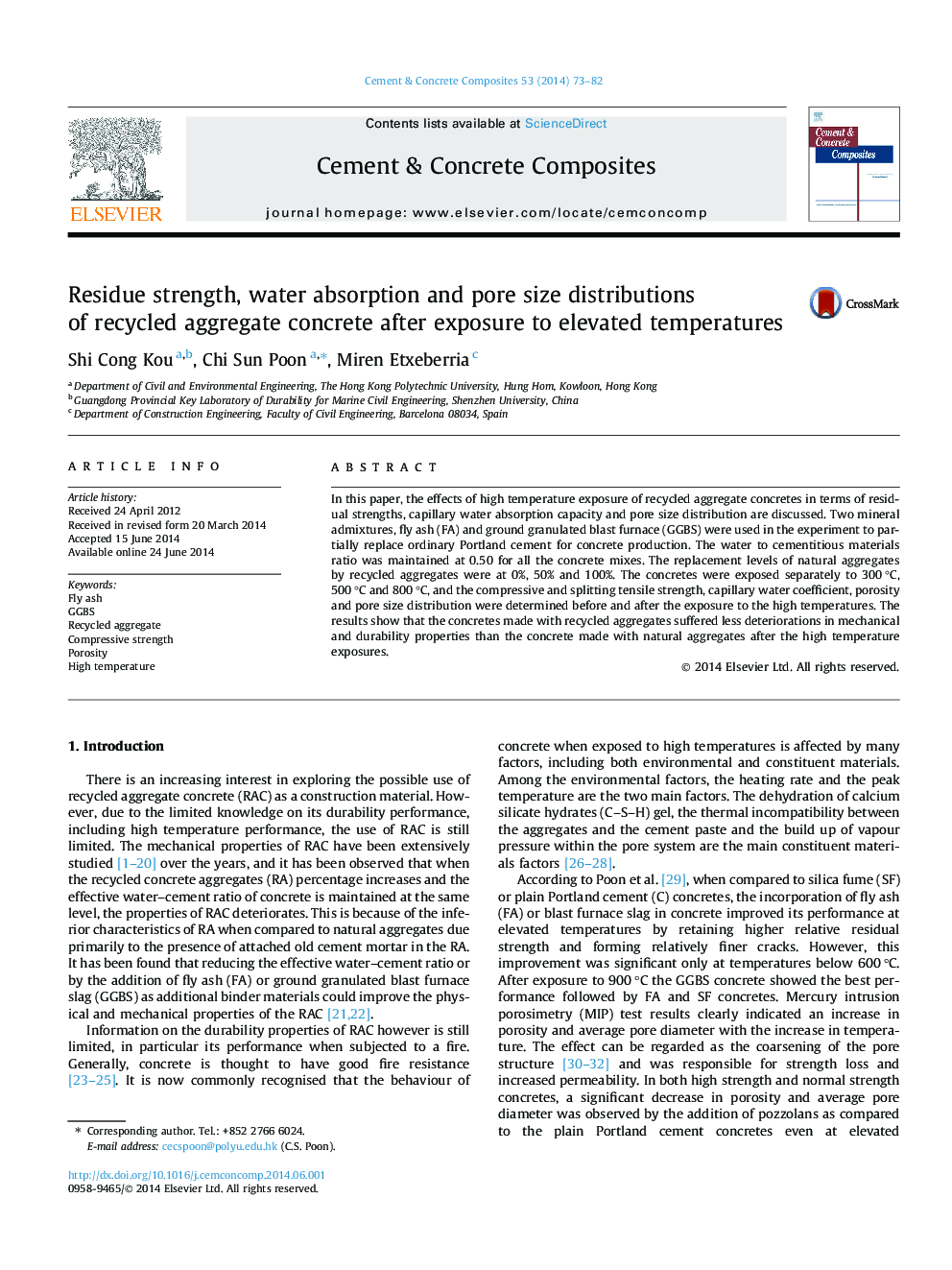| Article ID | Journal | Published Year | Pages | File Type |
|---|---|---|---|---|
| 1454544 | Cement and Concrete Composites | 2014 | 10 Pages |
In this paper, the effects of high temperature exposure of recycled aggregate concretes in terms of residual strengths, capillary water absorption capacity and pore size distribution are discussed. Two mineral admixtures, fly ash (FA) and ground granulated blast furnace (GGBS) were used in the experiment to partially replace ordinary Portland cement for concrete production. The water to cementitious materials ratio was maintained at 0.50 for all the concrete mixes. The replacement levels of natural aggregates by recycled aggregates were at 0%, 50% and 100%. The concretes were exposed separately to 300 °C, 500 °C and 800 °C, and the compressive and splitting tensile strength, capillary water coefficient, porosity and pore size distribution were determined before and after the exposure to the high temperatures. The results show that the concretes made with recycled aggregates suffered less deteriorations in mechanical and durability properties than the concrete made with natural aggregates after the high temperature exposures.
